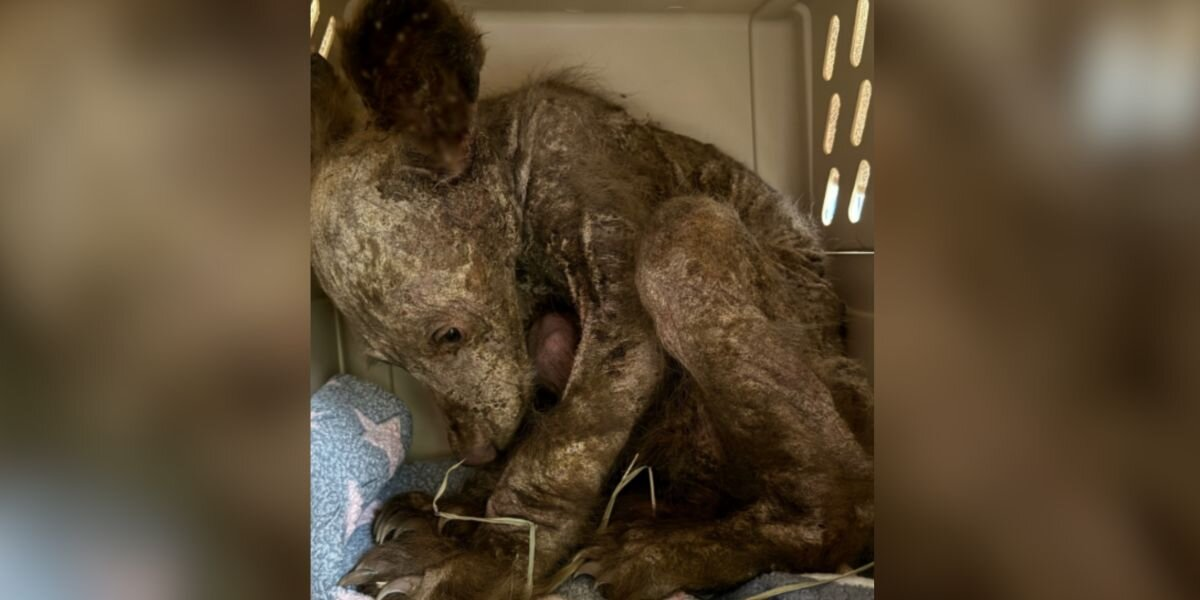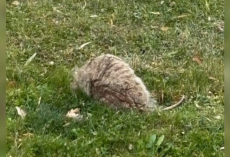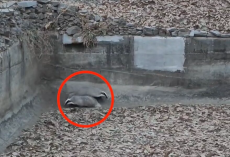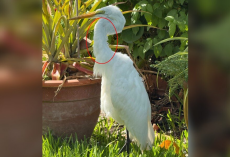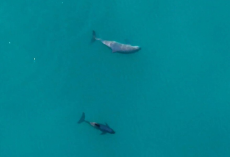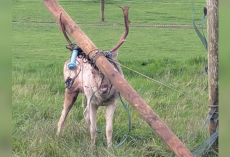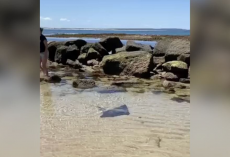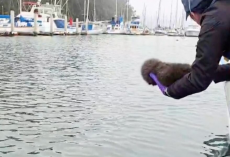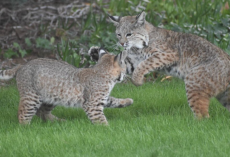When rescuers from Gold Country Wildlife Rescue (GCWR) in North Auburn, California, met a young black bear cub last December, they were heartbroken.
The tiny cub had been found wandering alone in El Dorado County, battling dehydration, anemia, and a painful skin infection. He was completely hairless and terrified, curled in his crate with his eyes fixed on his oversized paws.
“It was heartbreaking to see a bear cub in such terrible condition,” said Chelsea Engberg, GCWR’s marketing and outreach manager.
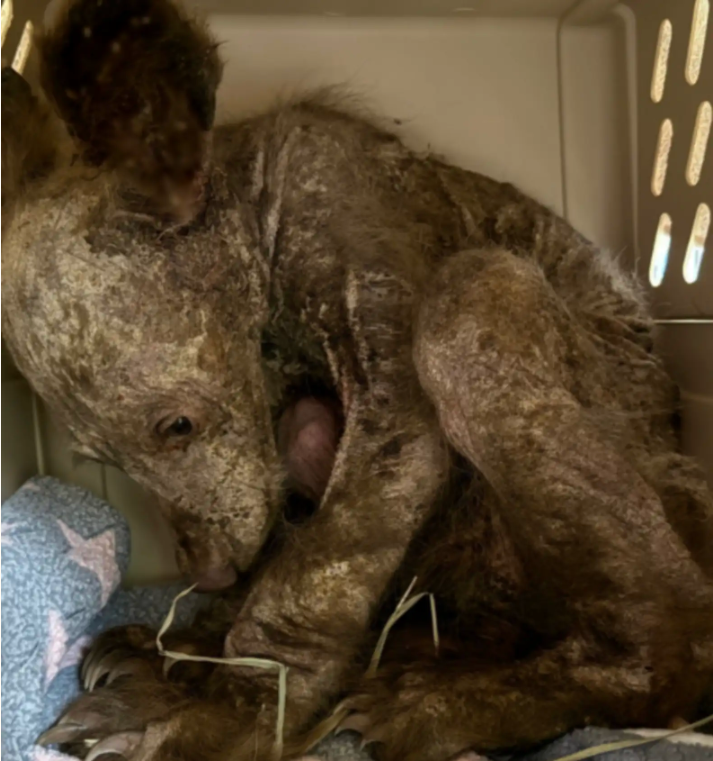
The team immediately developed a treatment plan, knowing the road ahead would be uncertain. But they were committed to giving the cub every chance to recover.
Small Signs of Hope
After weeks of gentle care and medical support, the first encouraging sign appeared: a soft fuzz began growing back on the cub’s face.
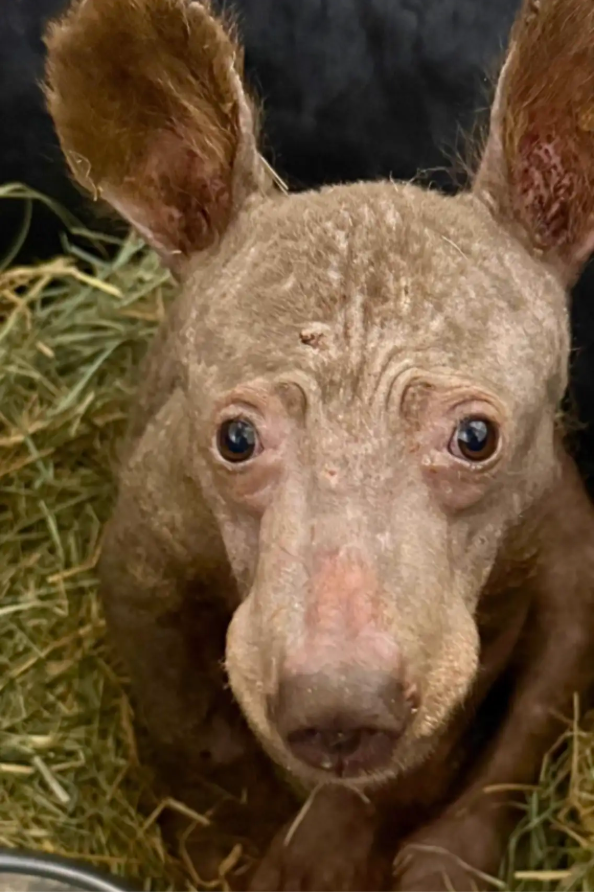
“While it might not seem like a big change, the fact that we are starting to see fur fuzz grow on his face is an exciting next step in his healing journey,” GCWR shared in a hopeful Facebook post.
With time, his condition continued to improve. Not only did his fur begin to grow back, but so did his playful spirit.
From Fragile to Fearless
As his health returned, the once-frightened cub began acting like a wild bear cub again. He splashed in a kiddie pool, explored enrichment toys, and relaxed in a hammock made of firehose.
Throughout it all, GCWR’s team made sure to limit human interaction, helping preserve the cub’s natural instincts.
By February, the transformation was staggering. The frail, hairless creature who once barely resembled a bear had become an energetic, fuzzy youngster.
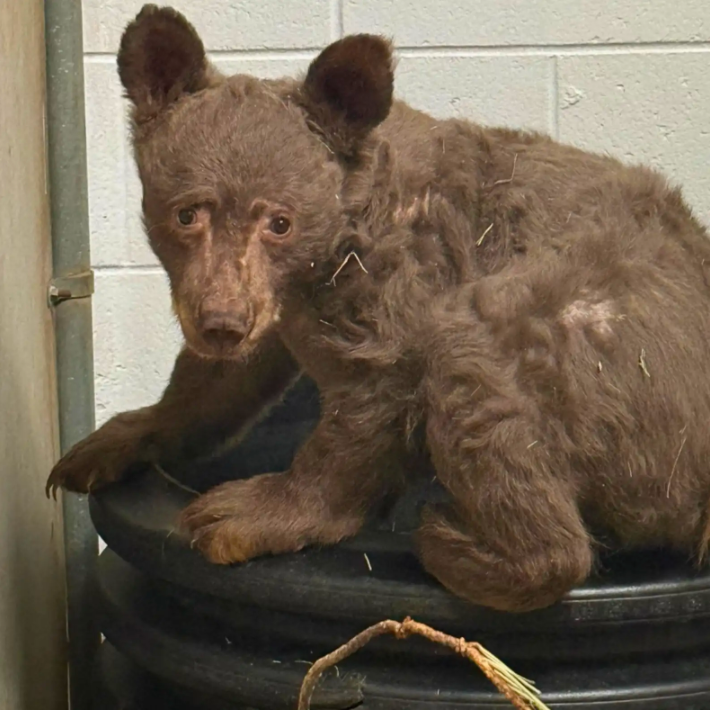
“We are always amazed by the wild animals in our care,” Engberg said. “But this bear cub is truly one of the most incredible recoveries we’ve ever seen.”
A Wild Future Awaits
The cub is still under GCWR’s care as experts from the California Department of Fish and Wildlife decide his future — whether he will return to the wild or transition to life in a protected sanctuary. No matter the outcome, his well-being is the top priority.
For now, he continues to grow stronger each day, surprising everyone who remembers the fragile little creature who first arrived.
“He was in such poor condition when he came in that he hardly even looked like a bear,” Engberg said. “To see him now — covered in fur, thriving, and uninterested in humans — it fills our team with pride.”
To help other animals like this bear cub, make a donation to Gold Country Wildlife Rescue.

